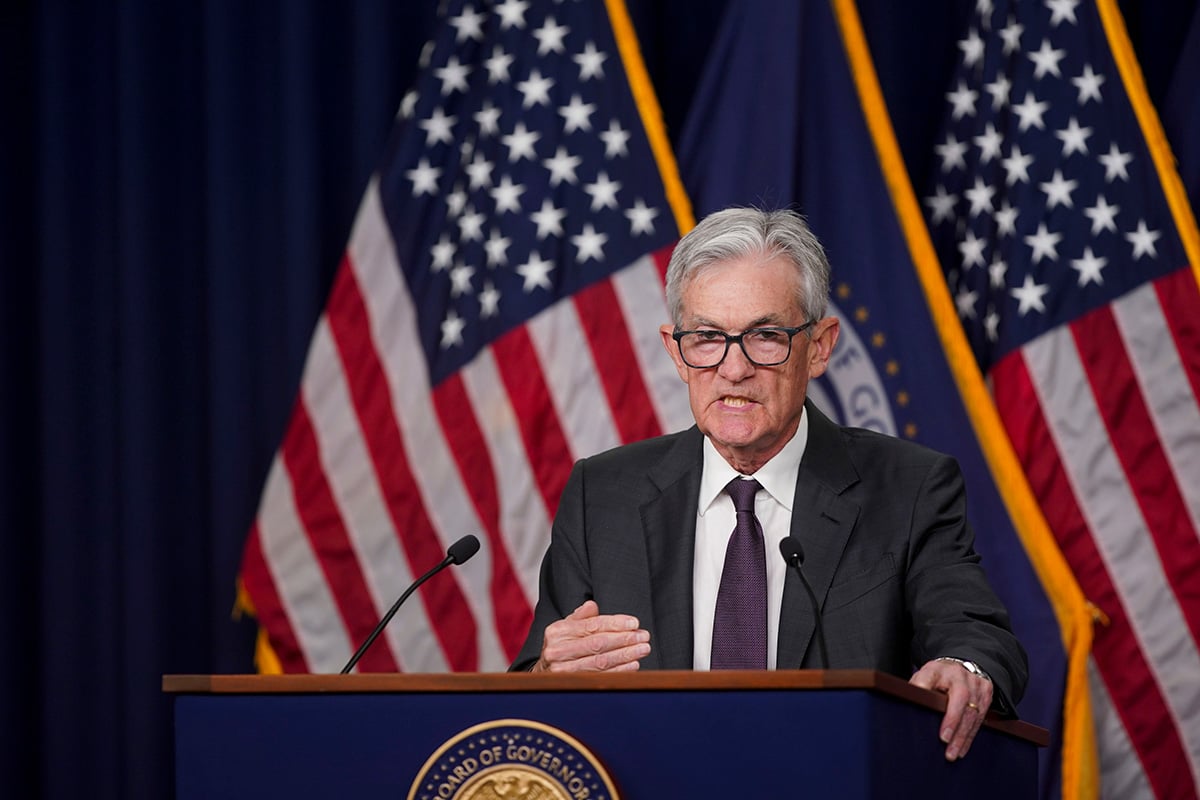The drag on corporate profits from fluctuations in foreign-exchange rates is getting worse as the second quarter comes to a close.
Currency-market volatility that's almost doubled in the past 12 months poses the biggest threat to earnings of any year on record, according to FiREapps, a Scottsdale, Arizona-based company that advises businesses and makes software to help reduce the impact of currency swings. That would surpass the approximate US$47 billion in losses that North American companies reported in 2012.
Companies from Facebook Inc. to Microsoft Corp. have already warned that their bottom lines will take a bigger hit than in the first three months of the year. While the dollar's surge is the main culprit, swings in everything from the euro to emerging-market currencies are magnifying the pain and making it more expensive to hedge.
“A key message that we have for our corporate clients is that volatility is back,” said Shaun Osborne, chief currency strategist at Toronto-Dominion Bank in Toronto. “If companies thought it had been bad in 2014, 2015 is not going to be any easier.”
The dollar has been rising in anticipation of the Federal Reserve's first interest-rate increase since 2006, reducing the value of earnings abroad when converted back into the greenback. The rally has also made goods sold by American companies less competitive overseas.
Bloomberg's Dollar Spot Index reached a record on March 13, capping a 22 percent advance that began in July. The gauge—which tracks the greenback against 10 major peers including the euro, yen, and British pound—has since fallen 3.9 percent.
The dollar is forecast to strengthen versus all but three of its 31 major peers by Dec. 31, according to strategist estimates compiled by Bloomberg. At the end of last year, the dollar was predicted to drop against 13.
The average North American company lost 8 cents per share due to currency fluctuations during the first three months of the year, almost double the average in 2014, according to FiREapps, which monitored 850 earnings conference calls. North American and European companies lost a combined $31.68 billion, 55 percent more than in the fourth quarter.
'Not Over'
“This is not over yet,” said Jack Ablin who helps manage about $66 billion as chief investment officer at BMO Private Bank in Chicago. “It's sort of a one-two punch for U.S. multinationals. Their goods become more expensive abroad and their profits become diminished.”
Wal-Mart Stores Inc., the world's largest retailer which gets more than a quarter of its revenue from international markets, missed analysts' first-quarter earnings estimates in part due to swings in exchange rates. Chief Financial Officer Charles Holley warned on a May 19 conference call that investors should be prepared for similar detractions from earnings due to currency movement the rest of the year.
A JPMorgan Chase & Co global index of implied volatility in currency options has risen to about twice its record-low 5.28 percent touched in July. Higher implied volatility, a component used in pricing options to buy and sell currencies, also means corporations' hedging costs have risen at the same time their need for insurance against foreign-exchange changes has grown.
Facebook lost 7 percentage points of revenue growth due to the stronger dollar last quarter and expects a bigger hit in the current period, Chief Operating Officer Sheryl Sandberg said in an April 23 conference call.
Microsoft Chief Financial Officer Amy Hood said the same month that the “significant impact” of the strengthening of the dollar on the company's quarter-end March 31 results will worsen in the April-to-June period. London-based SABMiller Plc said in May it expects currency headwinds to remain challenging in part as it lifts raw-material costs.
Standard & Poor's 500 Index earnings are forecast to contract 6.6 percent to $28.54 per share in the second quarter, down from growth of 10 percent a year earlier, according to data compiled by Bloomberg. The full-year estimate for 2015 is $117.50 per share, which would mark a 1.2 percent expansion for the 12-month period.
“2015 will likely be the worst year we've ever seen with regard to negative earnings impacts on companies,” said Wolfgang Koester, chief executive at FiREapps. “There is volatility in so many different currencies as major central banks are no longer taking concerted efforts to manage markets. That is causing havoc.”
–With assistance from Dina Bass in Seattle, Renee Dudley in Boston, Simon Casey, Drew Armstrong and Joseph Ciolli in New York, and Mary Schlangenstein and Thomas Black in Dallas.
Complete your profile to continue reading and get FREE access to Treasury & Risk, part of your ALM digital membership.
Your access to unlimited Treasury & Risk content isn’t changing.
Once you are an ALM digital member, you’ll receive:
- Thought leadership on regulatory changes, economic trends, corporate success stories, and tactical solutions for treasurers, CFOs, risk managers, controllers, and other finance professionals
- Informative weekly newsletter featuring news, analysis, real-world case studies, and other critical content
- Educational webcasts, white papers, and ebooks from industry thought leaders
- Critical coverage of the employee benefits and financial advisory markets on our other ALM sites, PropertyCasualty360 and ThinkAdvisor
Already have an account? Sign In Now
*May exclude premium content© 2025 ALM Global, LLC, All Rights Reserved. Request academic re-use from www.copyright.com. All other uses, submit a request to [email protected]. For more information visit Asset & Logo Licensing.





